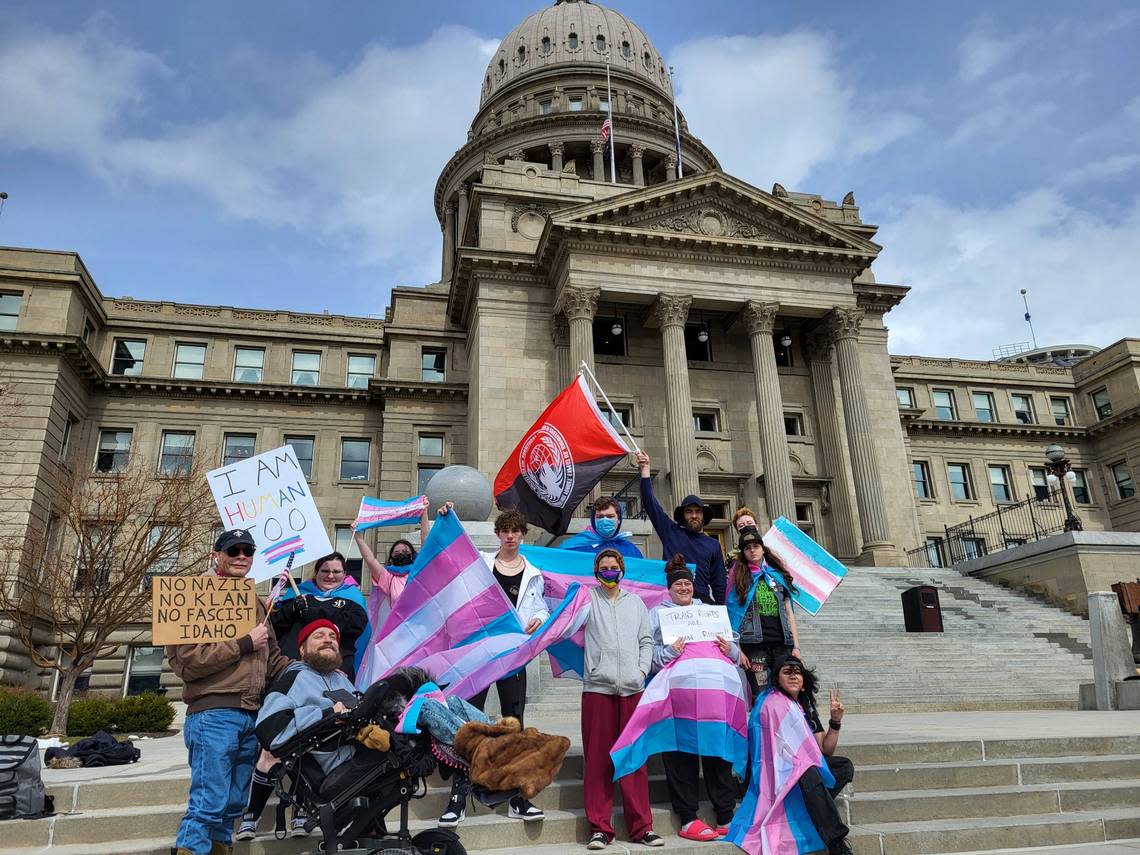Idaho Gov. Brad Little signs bill banning gender-affirming care for minors

- Oops!Something went wrong.Please try again later.
This is a breaking news story. Check back to idahostatesman.com for updates.
To sign up for breaking news alerts, click here.
Idaho physicians who provide gender-affirming care to transgender minors could now face up to 10 years in prison.
Republican Gov. Brad Little on Tuesday signed into law House Bill 71, which makes it a felony to provide puberty blockers, hormone therapies and transition-related surgeries to minors. Idaho becomes the 10th state to ban gender-affirming care for youth and young adults, according to the University of California, Los Angeles, School of Law.
“I recognize our society plays a role in protecting minors from surgeries or treatments that can irreversibly damage their healthy bodies,” Little said in a Tuesday letter to lawmakers. “However, as policymakers we should take great caution whenever we consider allowing the government to interfere with loving parents and their decisions about what is best for their children.”
GOP lawmakers who supported the ban on gender-affirming care said it’s harmful to children’s reproductive development, and mental therapy is a safer alternative.
“This bill is about protecting children,” said Rep. Bruce Skaug, R-Nampa, who crafted the legislation with the Idaho Family Policy Center, a Christian lobbying group.
But transgender Idahoans, and their friends and families, told lawmakers that gender-affirming care can be life-saving. Eve Devitt, a 17-year-old transgender girl, in February told a House committee that taking estrogen for the last three years improved her mental health, and that hormone therapy helped save her life.
“I’ve been able to get myself off a cliff that I wasn’t sure if I would ever find myself off of,” Devitt said. “I feel so much better and more complete with myself.”
The American Medical Association in recent years has opposed state policies restricting gender-affirming care. Forgoing the care can have “tragic consequences” for transgender people, who report improved mental health and lower rates of suicide after receiving care, said a news release from the trade group.
Idaho doctors offered conflicting opinions about gender-affirming care during the legislative session. Dr. Brandon Mickelsen, a family physician from Pocatello and president of the Idaho Academy of Family Physicians, an 800-member nonprofit advocacy group, urged lawmakers to oppose the bill because it would remove doctors’ options to care for transgender minors experiencing “severe pain.”
Dr. Rodney Story, a Moscow family physician who supported the bill, told lawmakers that the Idaho Academy of Family Physicians’ stance on gender-affirming care has caused a rift among members. Many have left the organization, in part because of its stance on transgender health care, Story said.
Support for bill split along partisan lines
Among lawmakers, support for the bill mostly was split across party lines.
Most Republicans backed the legislation, but some said the restrictions went too far. Rep. Lori McCann, R-Lewiston, who ultimately supported the bill, said she was conflicted after speaking with several parents of transgender children.
“If they were not allowed to have the medications necessary to help them on their journey, it would devastating for them,” McCann said during a House debate. “If it just said, ‘Let’s not allow the surgery,’ … that’s an easy decision.”
Skaug acknowledged during a committee meeting that there’s no evidence Idaho doctors are performing transition-related surgeries on minors.
Democrats strongly opposed the bill. Transition-related surgeries are not the standard of care in Idaho, Democrats argued, but hormone therapy and puberty blockers help transgender children feel comfortable in their bodies while they weigh a permanent change.
“This is complex,” House Assistant Minority Leader Lauren Necochea, D-Boise, said in the House debate. “We need to trust parents and honor their rights to navigate this process and make these decisions for their kids. The parents of gender-diverse kids are loving parents.”
Senate Democrats proposed amending the bill to ban only surgeries and add an exception for transgender minors who are suicidal, but Republicans rejected the changes.
Lawmakers this session also passed a law requiring that public schools maintain separate restrooms for transgender students. Little signed Senate Bill 1100 into law last month. Students can sue their school for $5,000 if they encounter a student using a bathroom that doesn’t align with their sex at birth.
Idaho Republicans also approved a new law banning local governments from requiring contractors to accommodate transgender individuals by providing separate bathrooms, showers or locker rooms that align with their gender identity.

